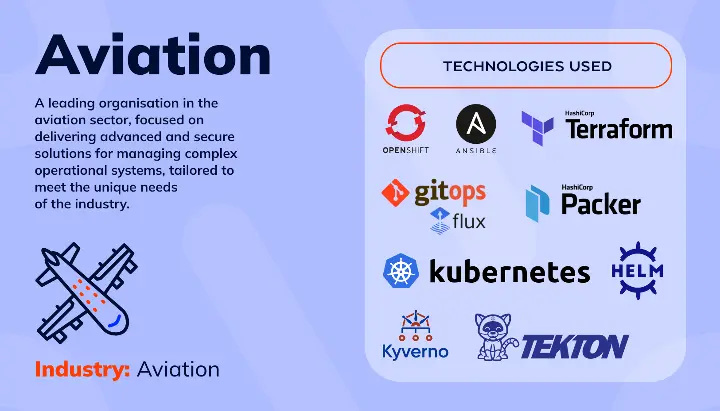Problem/Challenge
Disconnected, low-maintenance Openshift environment
The customer needed a fully air-gapped Openshift environment, isolated from external infrastructure and the Internet. The existing infrastructure could not support a standalone cluster that required minimal manual management while enabling easy deployment for developers.
The challenge impacted the customer’s ability to deploy applications efficiently while maintaining high security and availability standards. It also increased the administrative burden and delayed deployment times, affecting overall operational efficiency and developer productivity.
- Create a fully isolated Openshift environment with minimal manual management.
- Ensure developers have easy deployment capabilities with access control.
- Implement a scalable, high-availability setup without external dependencies.

Solution
Automated, isolated Openshift deployment solution
Nubera designed and implemented a completely independent Openshift environment, using golden images for essential components like DNS, image registry, and load balancer. These images were created with Hashicorp Packer and configured on boot with cloud-init. The environment features high availability through keepalived and is deployed via a combination of Ansible and Terraform for streamlined installation and upgrades. Developers deploy applications using GitOps with FluxCD, and access is controlled via Kubernetes-native objects and Kyverno. Standard deployments are simplified with Helm charts, and Tekton pipelines facilitate Docker builds and Helm chart packaging.
The project was executed within the allocated timeline and budget, showcasing expertise in engineering and project management. The implementation involved comprehensive planning and execution, leveraging automation and modern DevOps practices to deliver a robust and secure Openshift environment. The success of the project was marked by the seamless integration of multiple technologies and the creation of a scalable, high-availability solution that met the customer’s needs.
Outcome
- Efficient, secure, and automated Openshift environment
- Reduced manual management requirements
- Deployment times improved
- Enhanced security through complete isolation
- Streamlined deployment process with GitOps and Helm charts


